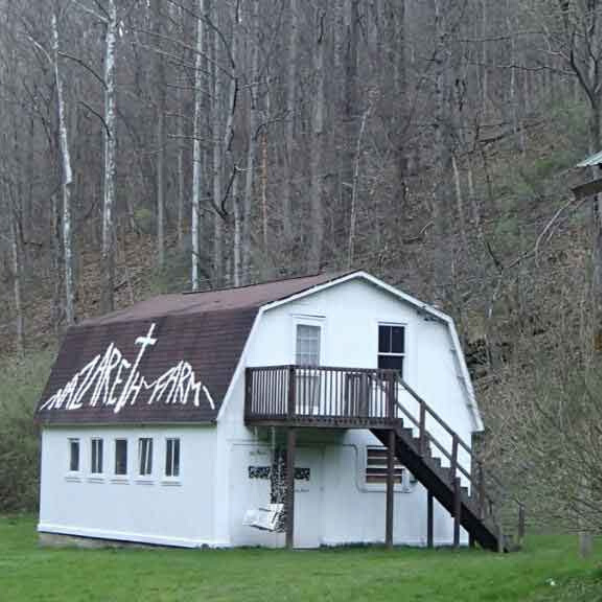STM's staff will share an image and reflect on it each Saturday. Today, Grace reflects on Mary's docility and her time at Nazareth Farm in West Virginia.

Today, on the Solemnity of the Annunciation, we remember Mary’s fiat – her world-shattering, mountain-moving, salvation-bearing yes to God’s will as she said to the angel, “May it be done to me according to your word.”
When we think of docility to the will of God – or to anything – it’s tempting to imagine a weak and submissive figure unable to stand up for oneself. It is for this reason that many Catholics struggle relating to Mary. They see her as a feeble character without the passions or wills we recognize in ourselves. Yet, this is a tragic misrepresentation of the Blessed Mother and a problematic understanding of the path to holiness. After all, we ourselves will be judged by our docility to God’s will.
Last week, I traveled with a small group of students to Nazareth Farm in West Virginia. This is a sustainable Catholic farm ordered around the tenets of Catholic Social Teaching. We did not have wifi, cell service, clocks or watches (listen for the bells!), or most “comforts” of everyday life. We prayed, we worked in snow, rain and wind, we played games, we took bucket showers and used outhouses, we worked on home repairs in the community, we listened to neighbors’ stories of hardship and enduring faith, we limited our consumption of water and electricity, we shared meals and we definitely smelled.
This was no vacation. And, the first few days there, that was hard to swallow and I resisted. I resisted the total lack of control. The inability to connect with the outside world. The infrequent alone time. The limited leisure time. The discomfort of a big dormitory, unwashed hair and muddy clothes (or, is that manure?). Those first couple days, I was anything but docile. I wrestled interiorly, pining for our return home when I would be back in my space with my routines and schedule. I was in danger of missing the graces of God that abounded in that beautiful corner of creation where the mist settled in the trees and barns dotted the landscape.
Thankfully, I was surrounded by some incredible people, including our students, who inspired me to stop resisting and start trusting. Refusing to surrender meant closing my heart to the movements of the Holy Spirit and blinding myself to the graces that awaited. Still, docility is no joke. It takes gentle and disciplined strength, deep trust and disarming humility to say, “Your will, God. Not my own.”
As we stand in awe of Mary’s docility, let us look ahead to Holy Thursday when Jesus says, “Father, if you are willing, remove this cup from me, yet not my will but yours be done” (Luke 22:42). Just like Mary, just like Jesus, just like all the holy men and women who have gone before us, we cannot get to heaven without docility to the will of God. May we have courage to deny ourselves and our wills for the sake of the kingdom.
In these final days of Lent, how can we practice or double down on our docility to God? Where in our lives are we resistant to God’s will? Name the resistance, pray to Mary for strength, and take the leap of faith. God will be with us.



